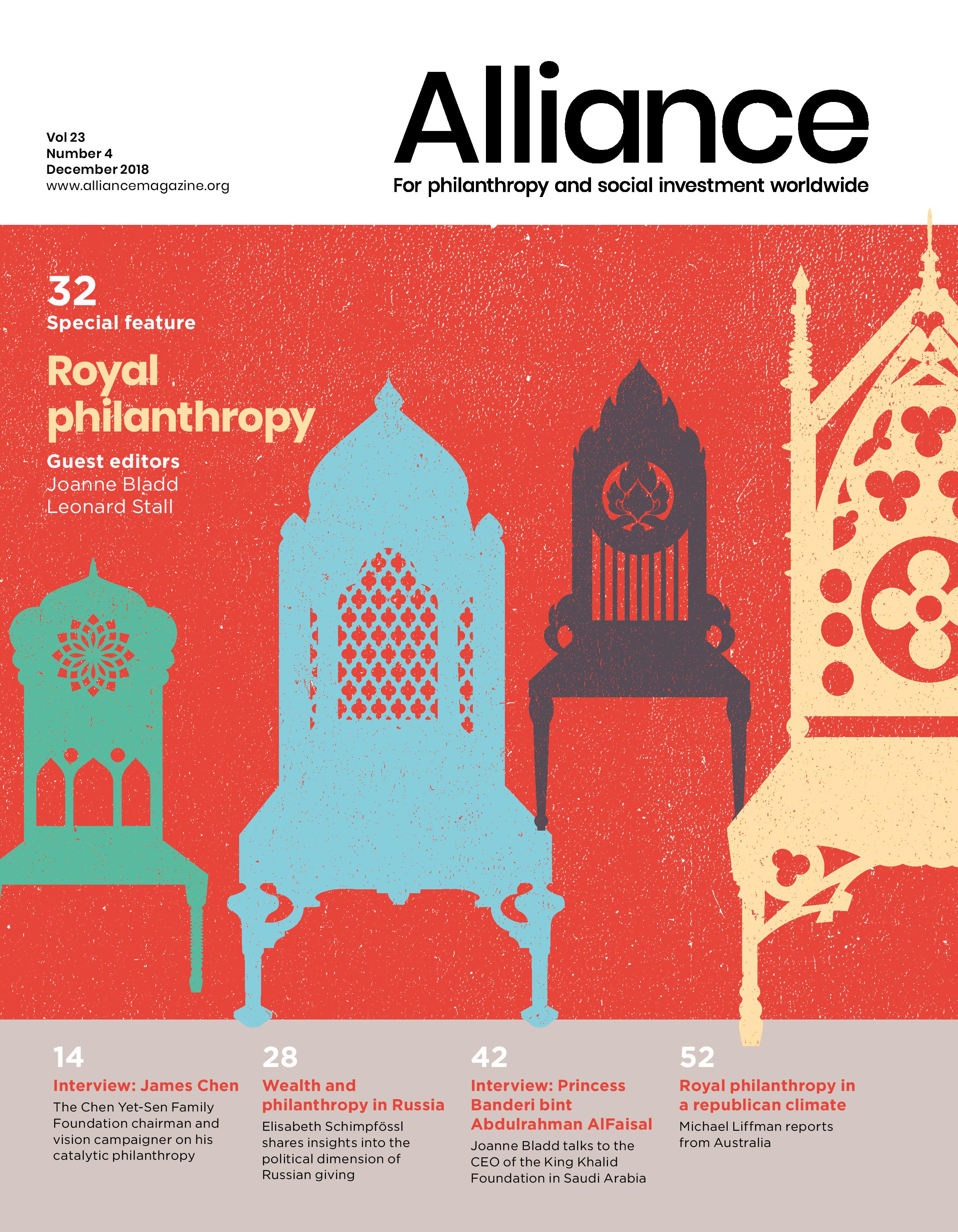It will be clear to anyone reading this special feature that almost all our contributors – drawn from regions as diverse as the Middle East, Asia Pacific, and Europe – see the philanthropic contribution of royals as an immense force for good.
Certainly, there seems to be much to commend in the philanthropic works of members of royal families (or MRFs to use the parlance). They bring networks, credibility and resources to improve health and education, tackle neglected causes, and catalyse change. Who could argue for example with Queen Elizabeth lending her authority to prevent avoidable blindness, Emirati royals supporting philanthropic initiatives to boost employment, or Dutch royals swimming for charity in the canals of Amsterdam?
But is there another, less gilded side to this story?
I asked myself this question as I experienced the hand of self-censorship exercising some of those writing about it. I lost count of the number of worried emails about saying anything critical or reminders of how to address royals. Why is there so much angst, and so much fear of offence if royal philanthropy is such an unalloyed force for good?
At the least, it seems royals need to loosen up and encourage those who rely on their philanthropy to spend less time and money occupied with protocol and hierarchy. As one royal source told me, ‘royals will only be in the limelight if they can control it’. Why is that?
There are issues to address with transparency, too, in some cases. Our guest editors, Joanne Bladd and Leonard Stall, note that royal ‘…giving is personal, often opaque, and largely immune to public scrutiny’.
Are there even deeper reasons to worry?
After all, royal support for philanthropy is a use of power, influence and prestige for good causes but also an expression of hereditary power and, therefore, unearned privilege. This privilege makes the need for more searching questions even more important. As the guest editors put it, ‘It is appropriate to ask hard questions about a form of giving that is in itself the result of dynastic privilege, and which is fuelled by an economic model that favours the few over the many.’
As influence and ambition grows in this space, it seems timely to ask whether royal philanthropy can genuinely contribute to creating equal opportunities when it is itself a system based on birth and marriage? That’s an open question worthy of more reflection by philanthropy practitioners.
But perhaps there is enough on show, especially in the silences and omissions in this issue, to give us cause for caution.
Charles Keidan
Editor, Alliance
@charleskeidan
@alliancemag






Comments (0)